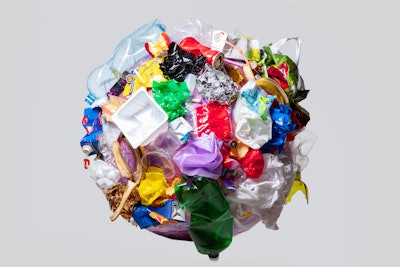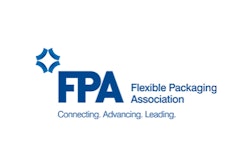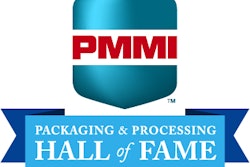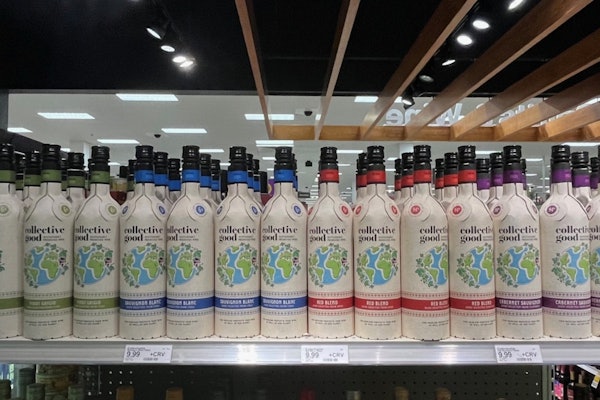
Garbology is the study of a society’s discarded waste and what it reveals culturally about that society. Its origin dates back to 1973 with the Garbage Project, where a team at the University of Arizona sifting through tons of garbage at a landfill. More recently, garbology is increasingly being offered at universities, high schools, and grade schools—not surprising, given this era of sustainability.
Garbologists and archeologists both “dig” their work; however, the latter do so at ancient sites and the former do so at modern-day sites. Packaging, as a component of the modern-day waste stream, necessarily is discussed in garbology, but to what degree of fairness and accuracy?
A throw-away society is a phrase alleging a preference for the production and consumption of short-lived, disposable goods. The phrase has been applied to societies in developed nations, with the United States being the poster child. There’s no denying that packaging has played a role: disposable cameras, disposable diapers, disposable razors, disposable you-name-it—none would be marketable without packaging. There’s equally no denying that products create the need for packaging, not the other way around.
Distinct from an objective analysis of what garbage suggests about a society, should garbologists wax subjectively about the intrinsic value of products and their packaging? If conceded such license, what criteria would garbologists, for example, apply in comparing fast-food packaging to unit-of-dose pharmaceutical packaging? Even invoking a criterion such as the health-promoting properties (or lack thereof) of the involved products, the fact remains that marketing is not just about satisfying needs (pharmaceuticals) but also about satisfying wants (fast foods). If garbologists choose to describe packaging as an enabler, fine; however, they should not go as far as to describe packaging as a culprit.
Garbology is a comparatively new discipline, and there is no consensus on how it can best add to mankind’s collective knowledge. Since garbology is the study of discarded waste, how much of the totality should it include? Yes, landfills provide a ready trove to sift through, classify, and quantify, but garbology can’t be true to its definition unless it also studies garbage diverted from landfills, namely by incineration and by recycling. And since garbology interprets cultural implications (i.e. mores, customs, values, and the like), it needs to present findings within context.
The preceding paragraph carries ramifications for packaging. The percent that packaging constitutes within a landfill doesn’t tell the entire story. For example, that portion known to be recyclable begs the question, why did it end up in the landfill? What or who is responsible, the packaging or the people?
On another note, a person might overestimate packaging’s percentage in a typical landfill, extrapolating from packaging’s percentage in that person’s household garbage. But a landfill contains other categories of waste, such as industrial and construction.
On yet another note, given the criticism that plastics have garnered as a landfill component, one might be inclined to overestimate its percentage. What garbology has revealed, however, is that the material comprising the largest percentage in landfills is paper, not plastic.
Further discussion can be made, but here’s the question: should garbologists content themselves with the dissemination of statistics or feel obligated to debunk myths, correct misconceptions, and educate as opposed to merely inform? Regarding the last mentioned, garbologists can inform regarding the presence of food packaging in landfills, but should they educate as to the amount of harvest that would end up as waste were it not for packaging? For that matter, should garbologists educate that processing plants and packaging lines permit the centralized collection of unused components (stalks, peels, offal, etc.), thereby facilitating collection and disposal?
Garbologists and their ilk allege that a society’s character is revealed in its garbage. If that’s true, does that paint an unflattering portrait of the United States and other developed societies? By “developed” is meant advanced levels of industry, the economy, and technology, leading to an advanced “quality-of-life.” To subscribe to the aforementioned is to admit that packaging is not only valuable, but indispensable. That’s because mass production, mass marketing, and mass distribution aren’t possible without packaging. Packaging’s use, nonetheless, should be commensurate with its application-specific purposes; thereby, the garbage generated should be no more than necessary.
But there are those who insist that all packaging and the garbage thereby generated are unnecessary, an argument that goes beyond a zero-waste society that’s sometimes spoken of with utopian reverence. Is there a role for garbologists as arbitrators between the warring camps? It will depend on whether both sides regard garbologists as honest brokers.
Corporations that market packaged goods, if they haven’t already, need to add garbology to their list of disciples of which to keep apprised. A single finding can have major consequences. As an example, it’s been reported that biodegradable items, such as food scraps and newspapers have been found in landfills, still identifiable after decades of being buried. Such should interest corporations evaluating so-called biodegradable plastics, for example, if for no other reason than to make sure that promotional claims don’t strain credibility.
Landfills are acres-wide and stories-high time capsules. There’s a note-worthy difference, though in that the contents of time capsules are arbitrarily-present; the contents of landfills are haphazardly-present. Garbage, therefore—in all its smelly randomness—tells the more wide-ranging, less-contrived, story. That’s not to say that the story tells itself. It requires translation, but if that translation so much as hints that packaging is an evil, well, that would be a bunch of garbage.
_________________________________________________________________________
Sterling Anthony, CPP, is a consultant specializing in packaging, marketing, logistics, and human-factors. His contact information: 100 Renaissance Center, Box-176, Detroit, MI 48243; telephone 313-531-1875;[email protected];www.pkgconsultant.com

























